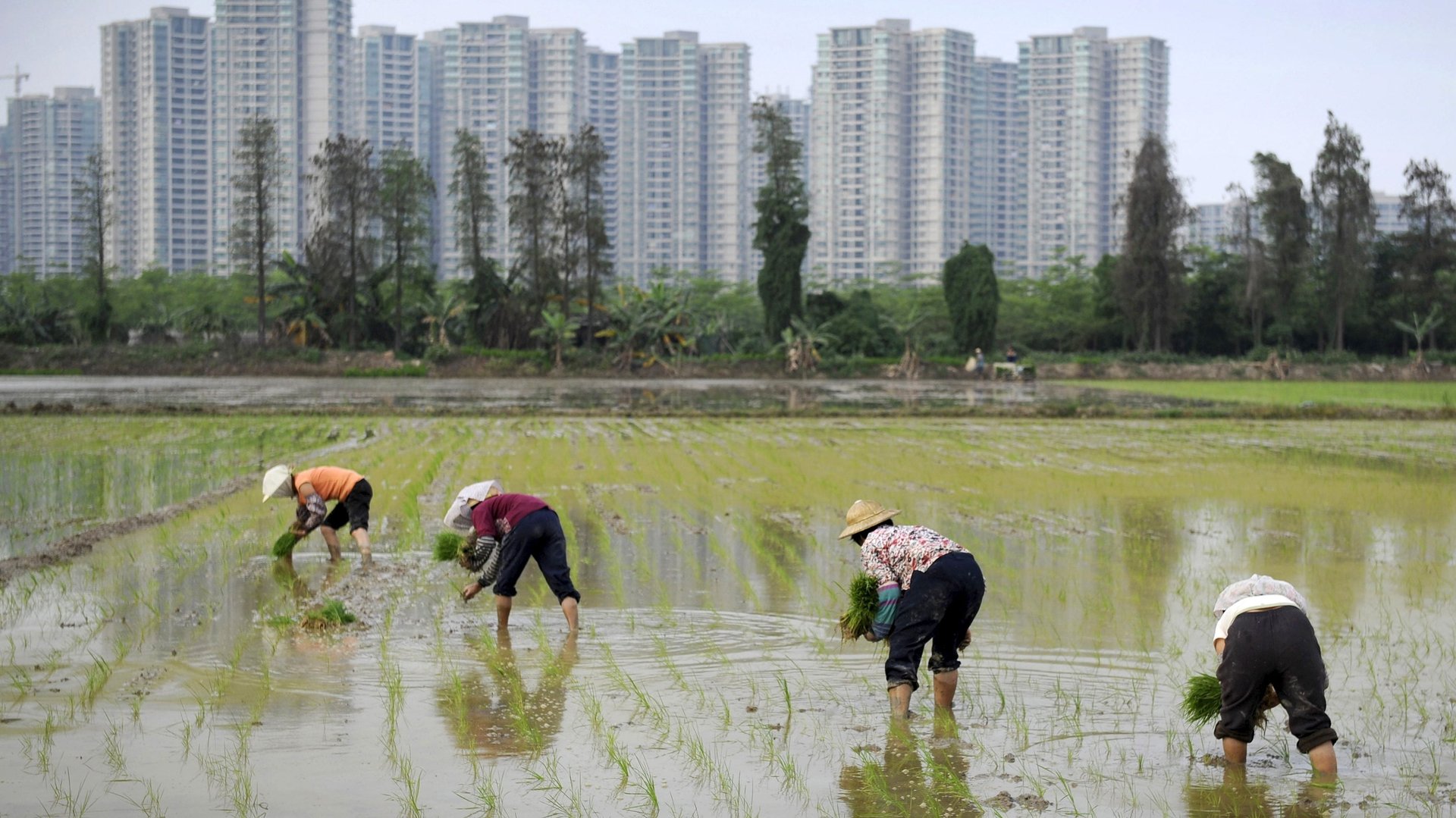China is most likely to execute a farmer, or someone who doesn’t have a job
China’s highly-publicized efforts to weed out corrupt Communist Party officials have often culminated in “suspended death sentences,” but it would be a mistake to think that party workers or bureaucrats count for a large number of the people sentenced to death in China, estimated to be the world’s top user of the death penalty.


China’s highly-publicized efforts to weed out corrupt Communist Party officials have often culminated in “suspended death sentences,” but it would be a mistake to think that party workers or bureaucrats count for a large number of the people sentenced to death in China, estimated to be the world’s top user of the death penalty.
Nor were they most likely to be human rights activists, or alleged spies, at least according to a study of publicly available Chinese data. Instead, China’s farmers are more frequently sentenced to death than any other group, according to Amnesty International’s analysis of death sentences confirmed by the country’s top court, the Supreme People’s Court (SPC), which reviews all capital punishment sentences.
Deemed state secrets, the nation’s annual execution figures are never published. Instead, using the Supreme People’s Court’s official court-verdict database, China Judgements Online, Amnesty found 701 death sentences confirmed by the court between 2011 and 2016, according to a report the human rights group published Tuesday.
Amnesty searched the database with the keyword “死刑,” the only term that Chinese courts would use for ”death penalty,” and analyzed rulings by the top court, to avoid duplicate occurrences of the same case at lower court levels. Launched in 2013, China Judgements Online had made over 20 million documents public by August 2016, according to the SPC.
The partial dataset showed that the majority of the people whose death sentences were confirmed were either farmers or unemployed. Farmers made up 55% of the total sentences, while 43% of China’s population is rural. Meanwhile, the unemployed formed about a quarter of the death sentences; according to official data the unemployment rate is near 4%.
The finding comes after the controversial execution of a farmer last November. Chinese authorities executed 30-year-old Jia Jinglong, who had been convicted of killing a village official after his house was demolished, a case that caused a public outcry in sympathy with the farmer. Twelve leading Chinese legal scholars and lawyers had signed a petition calling on the SPC to spare Jia’s life, citing Jia’s contrition for his crime and local corruption over the demolition case.
William Nee, the report’s lead author, cautioned that the sentences analyzed by Amnesty are likely to be a small portion of the total. The group found that many executions that appeared in media reports could not be found in the verdicts database, particularly those relating to drug or terrorism crimes. Amnesty found public news reports of at least 931 individuals executed in China between 2014 and 2016 via searches on Baidu, China’s equivalent to Google. Only 85 of them could be found in the official database.
Still, the available data shows troubling patterns, Amnesty said. The fact that ”there are so many farmers and migrant workers being sentenced to death would probably indicate that, as in line with the experience of other countries, relatively poorer people are more likely to be subjected to the death penalty, or are perhaps less able to afford adequate and effective legal representation,” said Nee.
Last year China raised the bar for awarding the death sentence for corruption offences.
Amnesty stopped trying to estimate the number of annual executions in China in 2009, though it still says that these are likely to number in the thousands. Data from San Francisco rights group Dui Hua indicated that the figure in 2013 was about 2,400, and also showed that China might be putting fewer people to death than it used to.